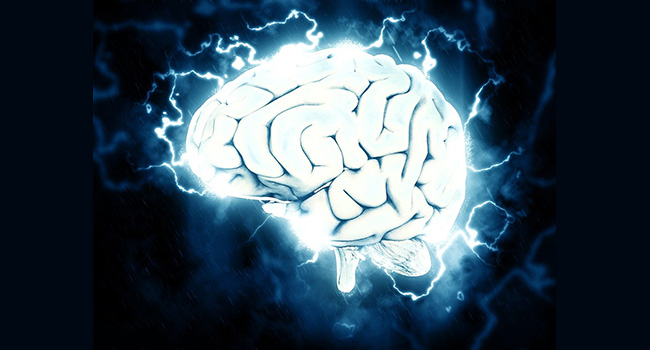
Major depressive disorder (MDD), or clinical depression, is a mental health condition characterized by persistent sadness, hopelessness, and a lack of interest or pleasure in once enjoyable activities. These symptoms can interfere with daily life, affecting relationships, work, and overall quality of life. Other common symptoms of MDD may include changes in appetite or sleep patterns, difficulty concentrating, low energy or fatigue, and thoughts of self-harm or suicide.
MDD is a common mental health condition, affecting approximately 7% of adults in the United States annually. It is caused by genetic, environmental, and psychological factors and is often treated with medication, psychotherapy, and lifestyle changes. If you or someone you know is experiencing symptoms of MDD, it is essential to seek help from a mental health professional.
Traditional treatments such as antidepressants may not work for everyone. However, a novel intervention called Deep transcranial magnetic stimulation (Deep TMS) has shown promise in treating MDD by targeting specific brain areas. While the lateral prefrontal cortex (LPFC) has been the primary target for Deep TMS, recent data suggest that targeting the medial prefrontal cortex (MPFC) using the H7 coil may yield better outcomes.
Clinical Trial
A prospective, multicenter, randomized study was conducted with 169 patients with MDD who had failed to respond to antidepressants. Patients were randomly assigned to receive 24 Deep TMS sessions over six weeks using either the H1 or the H7 coil. The primary efficacy endpoint was the change in Hamilton Depression Rating Scale scores from baseline to week six.The study found that the H1 and H7 coils had similar clinical efficacy and safety profiles. EEG measurements taken during the first treatment session correlated with clinical outcomes in a coil-specific manner, suggesting that different patients may benefit from LPFC versus MPFC stimulation targets.
Conclusion
This study offers a potential treatment option for MDD patients who have failed to respond to antidepressants, using the H7 coil for Deep TMS. Furthermore, identifying clinical markers that can distinguish between patients who may benefit from LPFC versus MPFC stimulation targets is a promising step toward personalizing treatment for MDD. However, further validation studies are needed to confirm these findings.__________
JCI Insight, Feb-22-23
ClinicalTrials.gov, NCT03012724
Depression Resources
About Major Depressive Disorder
Managing Depression in Type 2 Diabetes with Melissa officinalis Extract
Zuranolone For Anxiety and Insomnia in Postpartum Depression
Improving Treatment for Bipolarl Depression
Creative Interventions to Alleviate Anxiety, Depression, during Protective Isolation
Boosting Physical Activity for Depression: A Hopeful Approach for In-Patient Treatment
Nasal Spray Effects on Treatment-Resistant Depression
Personalizing Treatment for Clinical Depression with Brain Stimulation
Probiotics may Improve Brain Function in Depression
Clinical Trial examines Predictors of Relapse in Psychotic Depression
Rapid Improvement of Postpartum Depression Symptoms with Brexanolone
Is Psilocybin Safe and Effective for Treatment-Resistant Depression?
Clinical Study Shows Mediterranean Diet Benefiicial for Depression
Stratified Care vs. Stepped Care: Which Approach is More Effective for Treating Depression?
Aural Rehabilitation is Effective in Treating Depression in Older Adults
Art Therapy: A Promising Intervention for COPD Patients with Depression
Can Cognitive Behavioral Therapy for Insomnia help Alleviate Depression?
Clinical Trial Proves Exercise is Effective in Treating Depression in the Elderly
Clinical Trial shows Balanced Diet can Reduce Depression
ClinicalTrials.gov, NCT03012724
Depression Resources
About Major Depressive Disorder
Managing Depression in Type 2 Diabetes with Melissa officinalis Extract
Zuranolone For Anxiety and Insomnia in Postpartum Depression
Improving Treatment for Bipolarl Depression
Creative Interventions to Alleviate Anxiety, Depression, during Protective Isolation
Boosting Physical Activity for Depression: A Hopeful Approach for In-Patient Treatment
Nasal Spray Effects on Treatment-Resistant Depression
Personalizing Treatment for Clinical Depression with Brain Stimulation
Probiotics may Improve Brain Function in Depression
Clinical Trial examines Predictors of Relapse in Psychotic Depression
Rapid Improvement of Postpartum Depression Symptoms with Brexanolone
Is Psilocybin Safe and Effective for Treatment-Resistant Depression?
Clinical Study Shows Mediterranean Diet Benefiicial for Depression
Stratified Care vs. Stepped Care: Which Approach is More Effective for Treating Depression?
Aural Rehabilitation is Effective in Treating Depression in Older Adults
Art Therapy: A Promising Intervention for COPD Patients with Depression
Can Cognitive Behavioral Therapy for Insomnia help Alleviate Depression?
Clinical Trial Proves Exercise is Effective in Treating Depression in the Elderly
Clinical Trial shows Balanced Diet can Reduce Depression
